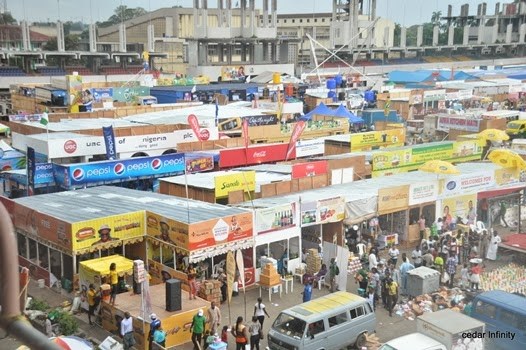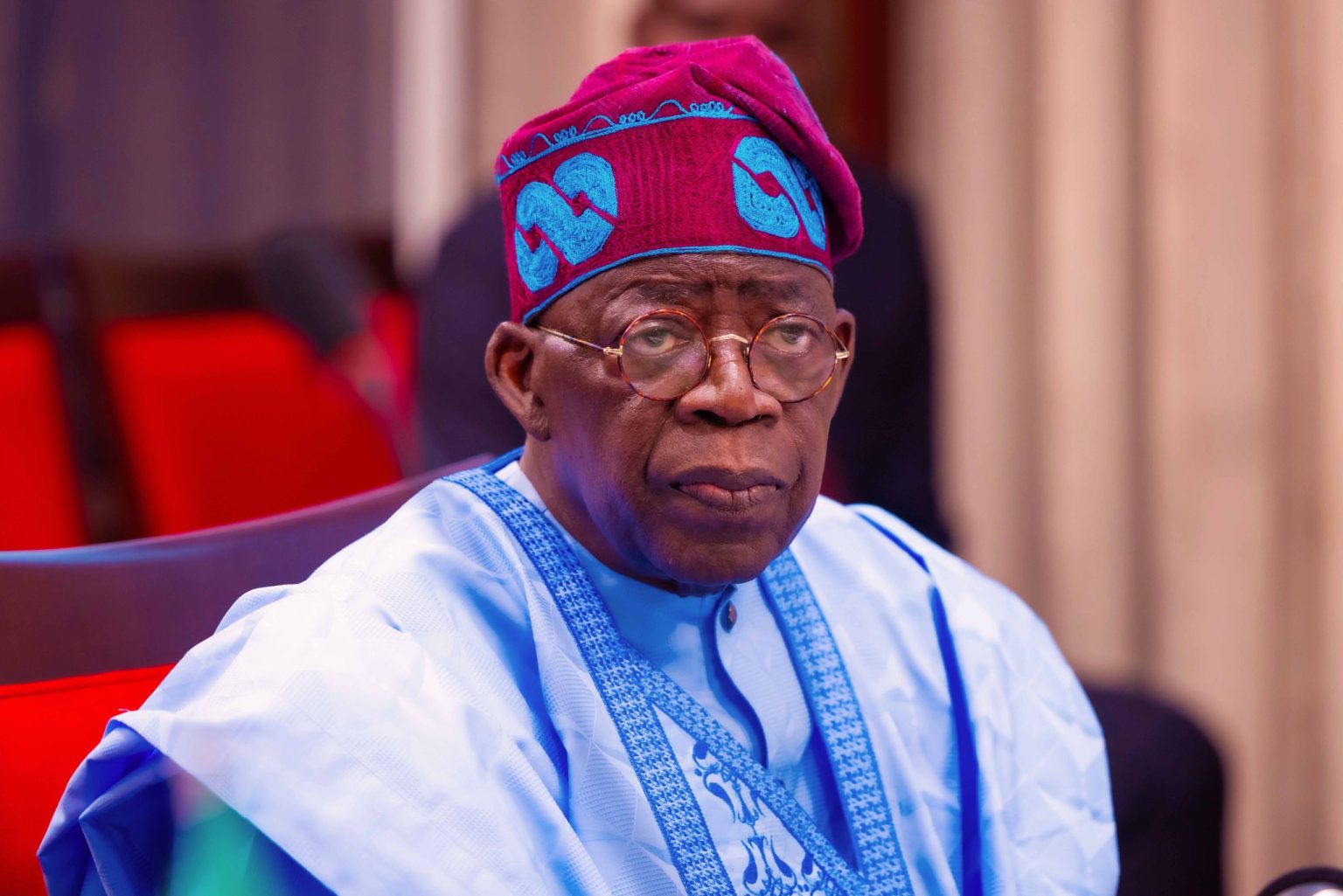BUSINESS
SEC, OANDO Move to Settle Case Out of Court

By Tony Obiechina, Abuja
Oando Plc has entered into a settlement with the Securities and Exchange Commission in the overriding interest of the shareholders of the Company and the capital market.
In a statement by Head of Corporate Communications, Mrs Efe Ebelo on Monday, the notice was contained in a Circular released by the SEC in Abuja Monday and signed by the Management of the Commission.
SEC had suspended of Oando Plc Ànnual General Meeting (AGM) despite different judgments from court cases instituted by the energy firm.
The Capital market regulator had hinged its action against Oando on what it termed “severe breaches of capital market regulations”.
According to the Circular, released on Monday, the company has reached a settlement with the Commission on the following terms amongst others: Immediate withdrawal of all legal actions filed by the Company and all affected directors; Payment of all monetary penalties stipulated in the Commission’s letter of May 31, 2019; and an undertaking by the Company to implement corporate governance improvements.
Part of the terms also requires the submission by the Company of quarterly reports on its compliance with the terms of the Settlement Agreement; the Investments and Securities Act, 2007; the SEC Rules and Regulations; the National Code of Corporate Governance and the SEC Guidelines to the Code of Corporate Governance.
According to SEC, “Pursuant to the powers conferred on the Securities and Exchange Commission (the Commission) by the Investments and Securities Act 2007, and the Rules and Regulations made pursuant thereto, the Commission on Thursday, July 15, 2021, entered into a Settlement with Oando Plc (the Company).
“The Commission in its letter to the Company dated May 31, 2019, gave certain directives and imposed sanctions on the Company, following investigations conducted pursuant to two petitions filed with the Commission in 2017.
“The Company and some of its affected directors had challenged the said directives in a series of suits commenced at the Federal High Court. However, the Company subsequently approached the Commission for a settlement of the matter, and both parties have now agreed to settle in consideration of the impact that a further prolonged period of litigation would have on the Company’s shareholders and the value of their investments as well as remedial measures to be put in place by the Company in enhancing its corporate governance practices and strengthening its internal control environment.
“The Commission further reiterates its commitment to ensuring the fairness, transparency and integrity of the capital market, while upholding its mandate to protect investors”, the statement added.
Economy
Trade Tensions: Global Economy Stands at Fragile Turning Point -UN

The UN Department of Economic and Social Affairs (UN DESA) has said that the global economy stands at a fragile turning point amid escalating trade tensions and growing policy uncertainties.UN DESA, in a report published on Thursday, stated that tariff-driven price pressures were adding to inflation risks, leaving trade-dependent economies particularly vulnerable.
It stated that higher tariffs and shifting trade policies were threatening to disrupt global supply chains, raise production costs, and delay key investment decisions – all of this weakening the prospects for global growth. The economic slowdown is widespread, affecting both developed and developing economies around the world, according to the report.For instance, in the United States, growth is projected to slow “significantly”, as higher tariffs and policy uncertainty are expected to weigh on private investment and consumer spending.Several major developing economies, including Brazil and Mexico, are also experiencing downward revisions in their growth forecasts.China’s economy is expected to grow by 4.6 per cent this year, down from 5.0 per cent in 2024. This slowdown reflects a weakening in consumer confidence, disruptions in export-driven manufacturing, and ongoing challenges in the Chinese property sector.By early 2025, inflation had exceeded pre-pandemic averages in two-thirds of countries worldwide, with more than 20 developing economies experiencing double-digit inflation rates.This comes despite global headline inflation easing between 2023 and 2024.Food inflation remained especially high in Africa, and in South and Western Asia, averaging above six per cent. This continues to hit low-income households hardest.Rising trade barriers and climate-related shocks are further driving up inflation, highlighting the urgent need for coordinated policies to stabilise prices and protect the most vulnerable populations.“The tariff shock risks hitting vulnerable developing countries hard,” Li Junhua, UN Under-Secretary-General for Economic and Social Affairs, said in a statement.As central banks try to balance the need to control inflation with efforts to support weakening economies, many governments – particularly in developing countries – have limited fiscal space. This makes it more difficult for them to respond effectively to the economic slowdown.For many developing countries, this challenging economic outlook threatens efforts to create jobs, reduce poverty, and tackle inequality, the report underlines. (NAN)Agriculture
NNPC Foundation Reiterates Commitment to Ensuring Food Security

The Nigerian National Petroleum Corporation (NNPC) Foundation has renewed its commitment to ensuring food security in the country.
Mrs Emmanuella Arukwe, Managing Director, NNPC Foundation, said this on Wednesday in her remarks during the training of vulnerable farmers in Akwa Ibom.
Arukwe said that 6, 000 farmers across the country would be trained on modern farming methods and market access strategies to boost food production in the country.
Arukwe, who was represented by Dr Bala David, Executive Director, Programme Development and Coordinator, NNPC Foundation, added that the Foundation was dedicated to implementing impactful programmes that aligned with national priorities.
She said that more than 500 farmers in Akwa Ibom were trained by the NNPC Ltd Agricultural Training Initiative for Vulnerable Farmers on modern methods and strategies to boost food production.
Arukwe added that the farmers were drawn from the state’s 31 local government areas to participate in the training to equip them with techniques and market access strategies to add value to their businesses.
“This programme is a testament to our unwavering commitment to food security, economic empowerment and national development.
“As the corporate social responsibility arm of NNPC Ltd, the Foundation is dedicated to implementing impactful programmes that align with national priorities.
“This initiative is part of our broader efforts to support the Federal Government’s agricultural transformation agenda, which seeks to enhance food security, increase productivity, and improve the livelihoods of smallholder farmers.
“Our goal is to equip every participant with the tools, knowledge, and resources needed to transition from subsistence farming to commercial-scale production,” Arukwe said.
In her remarks, Dr Offiong Offor, Commissioner for Agriculture and Rural Development, Akwa Ibom, thanked NNPC for the initiative to equip farmers with knowledge on modern farming.
Offor, represented by Dr Atim Okoko, Permanent Secretary, Ministry of Agriculture and Rural Development, said that a nation that trained farmers was a nation that would not go hungry.
“I want to express the state government’s appreciation to NNPC for mounting this laudable programme.
“A nation that starts to train farmers, a nation that starts to look at farmers will never go hungry.
“In this season that our President Bola Tinubu has come up with his Renewed Hope Agenda, everything is to end hunger in Nigeria,” Offor said.
The commissioner added that the programme came to complement what the state government was doing to ensure food sufficiency.
Responding on behalf of farmers, Mr Bassey Inwang, State Chairman, All Farmers Association of Nigeria (AFAN) said farmers in the state were so grateful for the training.
Inwang said the training would boost food production in the state, as the farmers would apply the knowledge gained on their farms for increase in yields.
He said, “We want to tell you that we will not take this training for granted, we will apply it properly on our farms.” (NAN)
Agriculture
FG Trains 120 Youths On Poultry Farming In Plateau

The Federal Government has commenced free six months training for 120 Plateau youths on poultry farming.
The training is through the National Youth Skills Acquisition Fund (NYESAF), under the Innovation, Development and Effectiveness in the Acquisition of Skills (IDEAS) Project.
Dr Daniel Jarafu, Chief Executive Officer (CEO) VetVille Nigeria Limited, one of federal government’s training service providers in charge of the training, said this on Saturday in Jos, at the flagoff of the programme.
Jarafu, said the project was a deliberate effort by the federal government to empower youths with skills that would make them skillful, self sufficient, employers of labour and in turn, boost economic growth of the nation.
According to him, the six months training is segmented into three months theoretical and three months practical aspects .
He further explained that at the end of the programme the trainees would sit for the National Skills Qualifications (NSQs) examination to earn a national certification which would be equivalent to certification earned in the formal education system.
Earlier, Prof. Arhyel Balami, the Guest of Honour, said the initiative by the federal government was highly laudable as it would lead to the empowerment of youths with hands on agricultural skills that would make them productive with sustainable livelihoods.
Balami, urged the trainees to make the best use of the training by being diligent, showing up and paying rapt attention during the course of the training.
The News Agency of Nigeria (NAN) reports that NYESAF is to train 75,000 youths nationwide, with the aim of enhancing job creation, entrepreneurship, and economic independence among young Nigerians.
NAN further reports that initiative underscores the government’s commitment to equipping youths with essential skills to drive economic growth and self-sufficiency



























